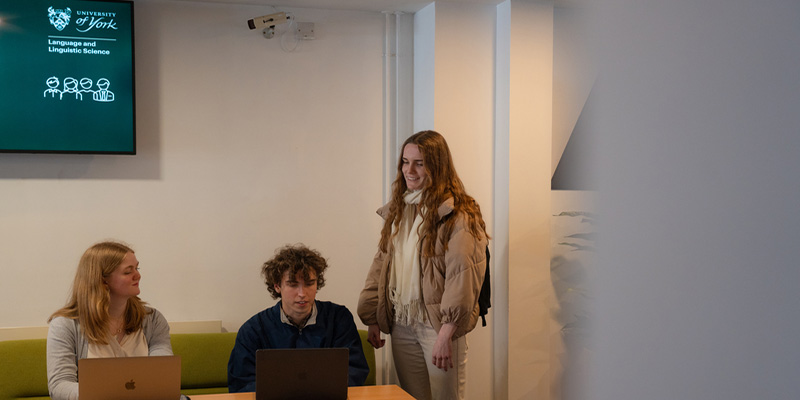Study in one of the leading linguistics research centres in the UK. We're a diverse and supportive community with courses for students with and without a prior background in linguistics.
Why study at York?
We specialise in theoretical syntax and semantics, phonetics and phonology, language acquisition, sociolinguistics, psycholinguistics, historical linguistics, forensic speech science, translation and interpreting.
You'll have access to dedicated facilities, such as our data lab, forensics lab and psycholinguistics lab. If you're a translation and interpreting student, you'll mostly study in our multilingual conference suite.







